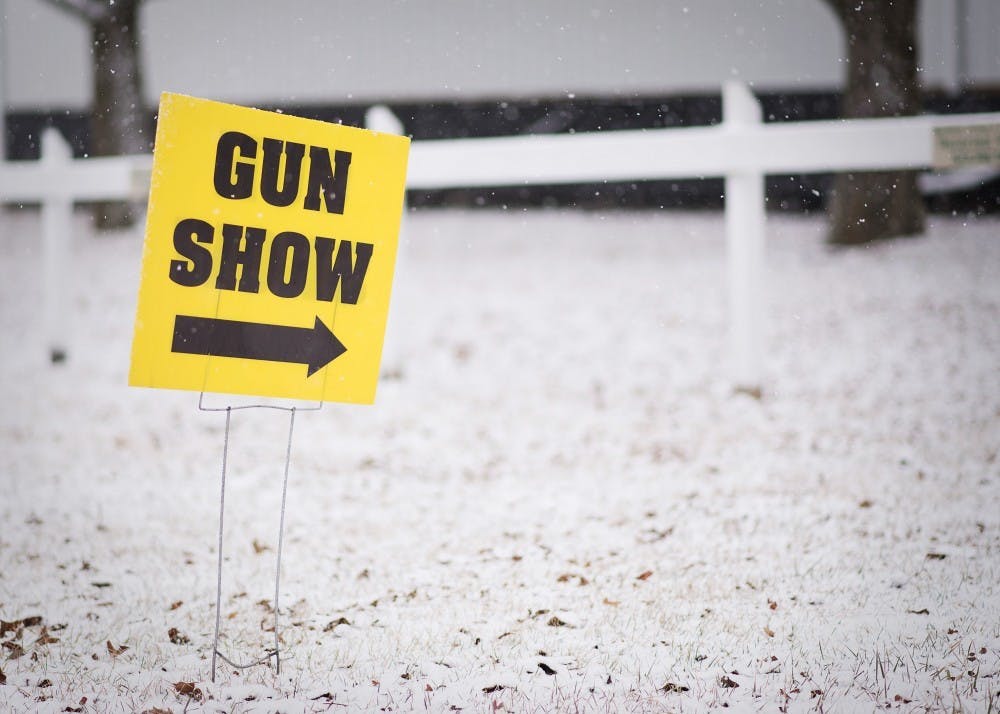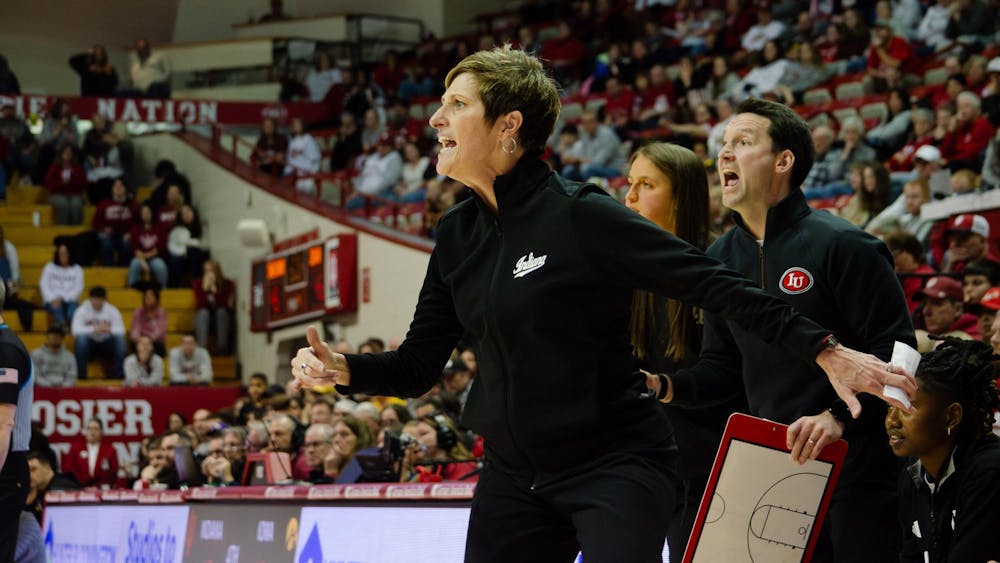In the Bloomington Police Department evidence storage area, Capt. Steve Kellams said there are several large trash cans full of guns.
The weapons in those bins are among the 72 guns BPD has confiscated and is currently storing under Indiana’s so-called red flag law.
The law allows police officers to immediately take guns from people they believe are a danger to themselves or others and has been named as a possible example for other states to follow in the wake of the Parkland, Florida school shooting last month.
“We’ve found it to be very useful because we come in contact with people who are mentally ill or mentally disabled, and that affects their decision making,” Kellams said.
The law, commonly known as the Jake Laird Law, passed in 2005 after a man shot and killed Officer Timothy "Jake" Laird of the Indianapolis Metropolitan Police Department. The man’s guns had previously been taken away, but police had to return them, because they had no legal standing to keep them.
Now, if a gun is confiscated, a judicial process intended to balance due process and public safety begins. First, any officer who uses the law must submit a statement to a judge explaining why they believe the individual to be dangerous.
A hearing is then scheduled to occur within two weeks, and a judge decides whether the gun should be returned or kept by law enforcement.
If a judge decides an individual should not be allowed to get their firearm back, the police department must keep the weapon, and individuals can petition the court for another hearing in 180 days.
If a judge decides again an individual’s guns should not be returned, they can have another hearing every 180 days until they get their weapons back or choose to stop. The court may ask law enforcement to destroy the weapon after five years.
Some critics of red flag laws are concerned about due process in the seizure, but Kellams said he thinks the law strikes a balance between protecting the public and respecting individuals’ Constitutional rights.
Kellams said he also appreciates that the law doesn’t create any obstacles for people who wish to purchase a gun.
“I tend to be a Second Amendment advocate kind of person, and I think this is a really nice balancing act,” Kellams said. “We also have to keep the community safe.”
Tyler Combs, president of Young Americans for Liberty at IU, said he is pro-gun rights, and as far as forms of gun control go, he thinks the red flag law is one of the better ones he has seen.
“If there’s going to be a form of gun control, it would be better to have something like this that has due process protections and affirms the right to own guns for use in emergencies,” Combs said.
Combs said he thinks the law does a good job of trying to protect due process in how it is written, but he added he would want to see studies on the law’s effectiveness before saying more states should adopt it.
He also said he is concerned with the clarity of standards in place for determining when to take away and return guns.
“It seems pretty subjective,” Combs said. “If there’s no clear standard of what is the threshold, that opens up the possibility for abuse.”
Kellams said that although BPD officers receive some training on recognizing and dealing with individuals with mental health issues, officers are not mental health professionals and want to leave the final decisions to the court and other professionals who know more.
BPD doesn’t use the law to confiscate weapons very often, Kellams said. Anecdotally, he thinks it’s used about once a year, and the department possesses 72 guns because individuals may own multiple weapons. About 50 were confiscated from one person alone.
Kellams said it’s impossible to know if any of those guns would ever have been used to harm someone, but he recommends the law to other states looking for ways to prevent gun violence.
“We can’t prove we saved any life at all,” Kellams said. “But I do feel like it makes a significant difference in keeping people safe.”






